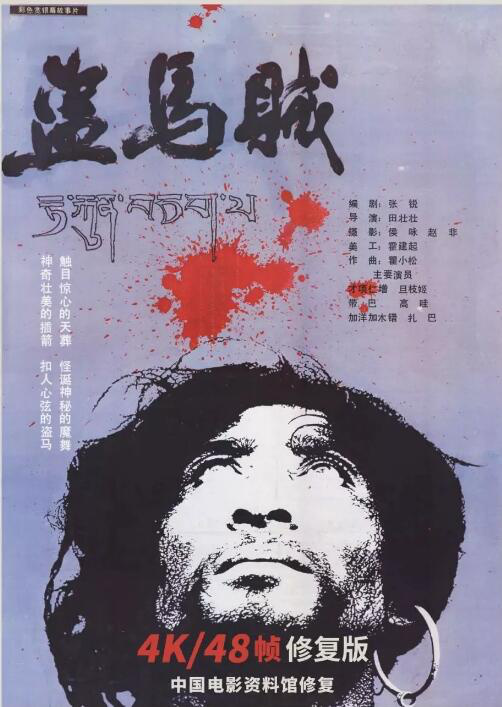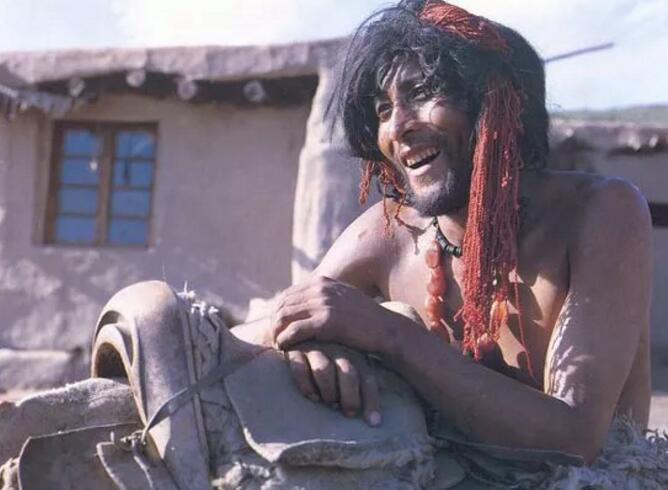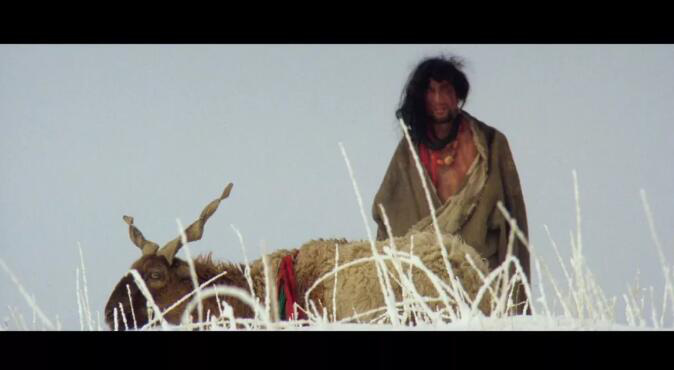
Special feature of 1905 film network After the film directed by Tian Zhuangzhuang, the fifth generation director of China, was released in 1986, the audience couldn’t understand it because it was too small and had a poor reputation. At that time, he left a "cruel remark": "My film was made for people in the next century".
Although Tian Zhuangzhuang clarified that this was a joke, more than 30 years later, horse thief really crossed the century and came to Cannes Film Festival for its premiere with a totally new look of 4K48 Tibetan dubbing.
On May 17th, Tian Zhuangzhuang came to the premiere under the guidance of Fu Mao, the artistic director of Cannes. He recalled that he was invited to Cannes during the filming of horse thief in 1985, and 34 years later, he revisited his hometown with horse thief, which was very predestined.
Cannes Classic Unit was founded in 2004. In the past 15 years, Chinese films selected for this unit have been selected. This time, the restored version of "horse thief" is the first time that an independent restored film from the mainland of China has been selected for this unit, and another domestic restored film has also been selected.
After the release of horse thief, we talked with director Tian Zhuangzhuang, photographer Hou Yong and relevant persons responsible for restoration and overseas distribution about this restored version of past lives. This film goes to the world in the form of restoration, which also opens a new way for other China classic films to open up international visibility and audience.
Horse thief has been restored three times.
Horse thief was once listed by martin scorsese as one of the top ten personal films in 1990s, and also highly praised by movie master Bertolucci and Evans.
The film tells the story of a poor Tibetan herder, Rolb, who steals horses for a living and struggles with his family between making a living and faith. It is a film that dilutes the story, breaks through the narrative tradition, and has both practical significance and religious color.

However, the film’s dirty spots, scratches, particle jitter and fading over time have greatly affected the viewing effect of the film. In 2017, the restoration team of China Film Archive began to repair the film.
After three times, for the first time, it was repaired with 2K technology. After reading it, Tian Zhuangzhuang found that there was a big problem, so he asked the photographer Hou Yong to supervise it. For the second time, it further adopted 4K and 48-frame restoration projection technology to improve the restoration effect.
Hou Yong introduced us that he first adjusted the frame, "If you don’t adjust it, it will really be finished. The frame is wrong, not 1: 2.35, but it seems to be cut into a feeling of 1: 1.6 or 1: 1.85." Secondly, he gave advice on color matching. He and Tian Zhuangzhuang insisted that the color of the picture should not be too bright. "Now the digital color is fake and calculated, because there is no film now, everyone has long since.
At the same time, there are some detailed adjustments. For example, a picture of a night play taken on a daily basis, the first repair version is still adjusted to the brightness of the day, and the second repair is close to the feeling of a night play. Hou Yong said frankly that his participation was to restore and get closer to the color sense of the film and the desired picture effect when shooting at that time.
Tian Zhuangzhuang didn’t personally participate in the restoration process. He said that his only advice was to find Tibetan audio tracks, because Tibetan is more authentic and natural than Chinese dubbing. Three months after the idea was put forward, China Film Archive found the Tibetan sound file from France and re-made it into 5.1 channels, which also contributed to the completion of the latest Tibetan restored version.
Judging from the screening effect in Cannes, the quality of the film is very clear, and there are also very pleasing colors. Tian Zhuangzhuang also praised us: "This is the best of all the restored versions of the fifth-generation film I have ever seen."
Zuo Heng, the representative of China Film Archive, also came with Tian Zhuangzhuang and his party this time. He deeply regrets the restoration process of horse thief:
"Restoration is a very delicate state. For example, we think that the film is a little dim and needs to be brightened, but this may not be what the director and photographer wanted at that time." It is precisely because of the guidance of the creative team such as Hou Yong that the restoration effect is closer to the original appearance.

As for the early domestic films, Zuo Heng revealed that he could only get information from the director’s notes, review articles, photos and other documents at that time to repair them. "Just like repairing the old mural, it may have been painted by Leonardo da Vinci, but later generations should repair it, whether it is right or wrong, even if there is a mistake, there should be an aesthetic embodiment."
How to restore the film to the world
Digital restoration technology has brought a new round of criticism of classic films, and re-examined the artistic value and historical value of films, and the international market of restored films has also become active in recent years.
Zuo Heng told us that the current overseas distributors are very interested in classic old films. Compared with the new films, it takes a lot of energy to make publicity. Most of the old films have passed the time certification, and they can log in to cinemas, online platforms or make DVDs in various countries through multi-channel and sub-regional distribution.
Xie Meng, head of Chek Lap Kok Culture, led the overseas distribution of the restored version of horse thief. He introduced the film to Cannes as their first stop. "Through the platform of Cannes Film Festival, it can be introduced to more filmmakers, curators of other national film archives or overseas distributors, and then they will take the film to their respective markets or film festivals."
Next, they will take the restored version of horse thief to the second stop of overseas promotion: Lyon Film Festival, because there is a distribution market dedicated to the restoration of classic films.
Xie Meng believes that there is a certain profit margin in overseas distribution of domestic classic restoration films, which can be released as a new film model with relatively simple operation.
He also said that whether it is cultural activities organized by the government, exchanges in film festivals, or promotion through international sales channels, the most important thing for China to restore classic films to the world is the film content itself. "What kind of content is released in what channel will determine the width and breadth of the final spread."
In addition to the restored version of horse thief and the restored version of Diary of a Nurse, which will premiere in Cannes, there will be many domestic classic restored films, such as (1965) and (1956) and 2-3 4K restored films planned by China Film Archive every year, and this international trip of horse thief will also enable them to go global in the future and gain more effective promotion experience.